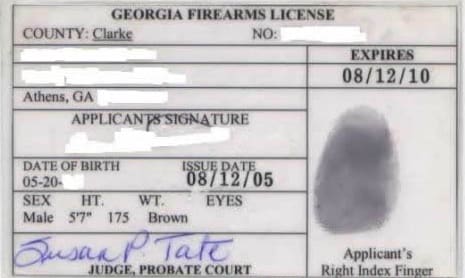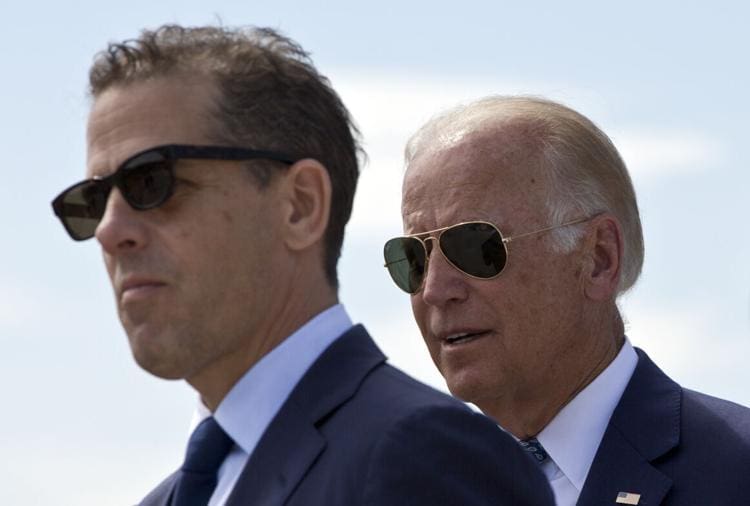Just a quick thought: why should there be ANY preconditions for purchasing, owning or carrying a firearm in any state in the United States? You know: save citizenship. You don’t have to take a test or pay a fee to exercise your First Amendment right of free speech. Sure, you can’t shout movie in a crowded firehouse, but why not let the average, law-abiding U.S. citizen own a gun without making them jump through more hoops than Madame FiFi’s performing poodles? They’d have to abide by all existing criminal statutes. So . . . Gun control advocates seem to believe that the average American is too stupid to own or carry a gun without accidental discharge (Proctor and Gamble are working on it) or blasting someone in a fit of pique. Most gun owners do nothing of the sort. Ever. Making it difficult to buy a gun excludes the poorest members of our society—the very people with the most compelling need to own a firearm. It’s not fair, and fairness is the cornerstone of our society. At least in theory. Besides, it’s a trade-off. Collateral damage vs. self-defense. We “sacrifice” over 40 thousand lives a year for mobility. How much is our right to defend ourselves worth? At the risk of sounding [even more] callous, Darwinism will limit the “unintended consequences.” As it does now. So why not drop all this nonsense about training and licensing and let Americans—ALL Americans—buy guns as and when they want to? As is their right. [sent from my iPhone]





Well technically the second amendment is our concealed carry permit. However the courts have screwed that up. Back 200+ years ago there was no such thing as a concealed carry permit. However the first gun control act and all the others made it impossible to go back to the original intent of the second amendment.
Well, the short answer as to why your state can require a permit to own or carry a gun is because the 2nd amendment doesn't (yet) apply to the states.
To lengthen that short answer a bit: In Barron v. Baltimore, 32 U.S. 243 (1833), John Marshall wrote for a uninimous court that if the founders had wanted to Bill of Rights to apply to the states, they would have explicitly stated so. Many people take issue with Marshall for this stance, but the truth is that Marshall was a contemporary of Hamilton, Madison, Jay, Jefferson, and other founding fathers, and if anyone can be said to have understood the minds of the founders, it was Marshall.
After the Civil War, the 14th Amendment prohibited states from infringing on the civil rights of citizens. Over time, this developed into the Incorporation Doctrine, whereby the courts determined that some of the rights contained in the Bill of Rights were "fundamental" and therefore applied to the states through the 14th Amendment. The kicker here, though, is that the BoR was not incorporated as a whole, each specific right had to be first determined to be "fundamental" and then it was incorporated in a separate Supreme Court decision. Thus far the 2nd has not been incorporated and therefore the States are free to restrict arms in any manner that is consistent with their own State Constitutions (many states have RKBA provisions in their state Constitutions, I know Colorado does.)
If the 2nd amendment is incorporated to the states via the 14th amendment (and I expect it will be this summer with the Supreme Court decision in the MacDonald case) then the next question will be: What limits can legitimately be placed on the "keeping and bearing" of arms.
Certainly there are a lot of people who would argue that any restriction on the ownership or carry of arms is unconstitutional. But in reality there are no "unfettered" rights, even those enshrined in the Constitution.
Note that in the Heller case, the Supreme Court stated explicitly that permits, registration and other encumbrances on ownership of firearms were Constitutionally permissible as long as they did not function as outright bans, the way the DC laws did. From that we can probably extrapolate that the Court will similarly hold that as long as a restriction on the ownership or carrying of arms does not create a de-facto ban (like a requirement to pay a $10,000 fee to license a handgun) it will be upheld as Constitutional.
"So why not drop all this nonsense about training and licensing and let Americans—ALL Americans—buy guns as and when they want to? As is their right"
The answer to your question is very simple. An armed citizen, willing and able to defend him/herself is a great threat to those in polictical power. This is why gun owners are projected as "nuts", why the polictical class calls for more and more regulations on gun ownership each year, and why our children are taught as soon as they are school age that guns and self defense in general are evil and wrong.
Armed citizens are less likely dependent on government and as a government whose sole objective is complete and total control of the everyday lives of its citizens, our government simply cannot tolerate a population of well armed citizens.
I know there are quite a few people on gun boards who will say that the 2nd amendment's statement that the RKBA "shall not be infringed" means that there should be no encumbrances on the possession or carry of arms.
To those I would ask: Do you support laws that prohibit the mentally ill from owning, possessing or purchasing guns? Convicted felons? Minors? Illegal immigrants? Because if so (and I think most people, even die-hard 2nd Amendment people, support such laws) then you already support restrictions on the 2nd amendment.
I don’t. If they can be taken away, then they are not rights, they are privileges. As long as a convicted felon has done their time, then they have paid their debt to society.
Comments are closed.